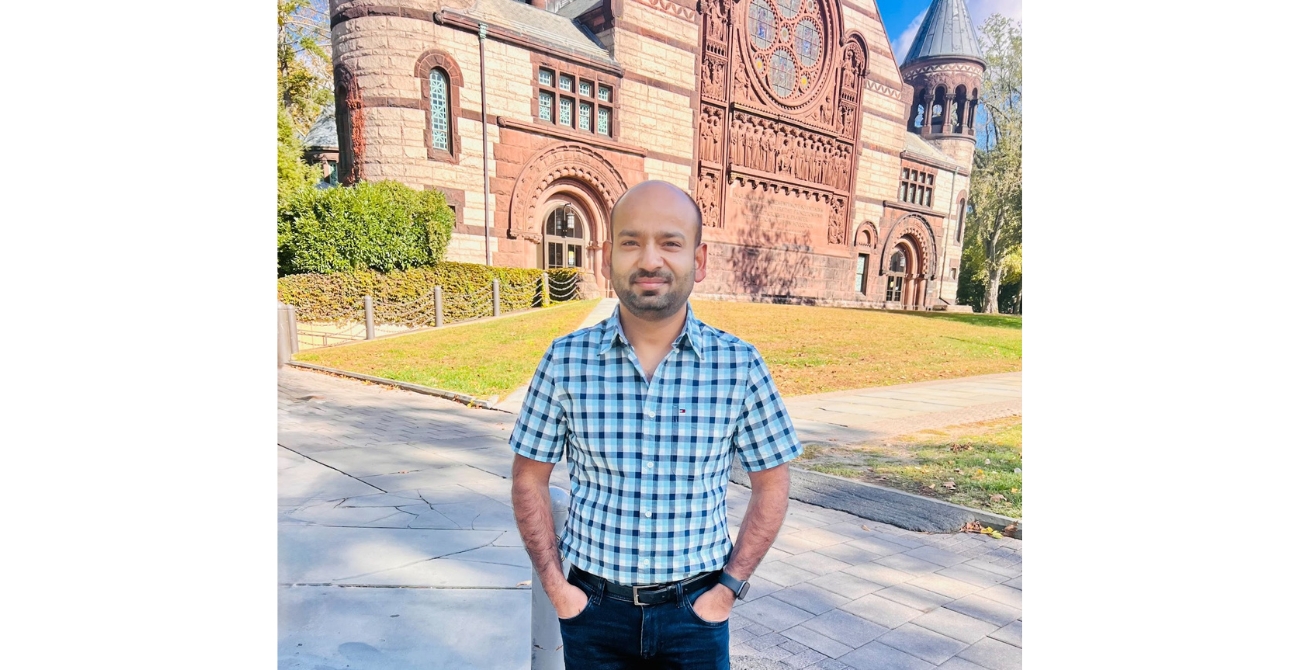In a world where data fuels innovation and AI defines the future of business, Shishir Tewari stands at the intersection of both. Having nearly twenty years of expertise in data engineering, cloud architecture, and artificial intelligence systems, Tewari has overseen changes at some of the most well-known companies in technology—Google, Amazon, Morgan Stanley, and now Procore Technologies.
Recent book by him, The AI-Driven Enterprise: Scaling Data & AI for Business Success, provides a thorough investigation of the frameworks, case studies, and ethical issues required to propel effective AI adoption. In a recent interview, we sat down with Shishir to discuss his professional path, his vision for corporate artificial intelligence, and the ongoing research influencing his ideas.
Interviewer: Shishir, your path crosses banking institutions and technology behemoths. What attracted you to data engineering, and how has your emphasis changed with time?
Shishir Tewari: I have always thought data drives decision-making. At HCL and Microsoft, I was early on captivated by how raw data might be organized to reveal insights. Eventually, that interest developed into a love for creating data platforms that really drive strategy rather than just store and analyze data. From backend engineering, my emphasis has shifted to guiding major projects using artificial intelligence and machine learning to enhance data even more.
Interviewer: Procore Technologies is where you develop next-generation data systems. Could you discuss the AI-driven MDM system you have led there?
Shishir Tewari: Of course! A developing company depends on master data management. At Procore, we included AI/ML in our MDM processes to automate data classification, validation, and enrichment, which set us apart. This greatly increased data consistency and accessibility throughout corporate operations. It’s about smart data that can forecast abnormalities, propel real-time decisions, and change with corporate demands, not only about clean data anymore.
Interviewer: Your most recent book, The AI-Driven Enterprise: Scaling Data & AI for Business Success, was published. What motivated the book and who is it intended for?
Shishir Tewari: Years of collaborating with companies trying to operationalize artificial intelligence gave birth to the book. Many have the tools but lack the plan. Business executives, data engineers, and artificial intelligence experts will find guidance in the AI-driven enterprise. From AI platform design to cloud infrastructure optimization, governance, ethics, and promoting an attitude of artificial intelligence innovation, it addresses all. With practical knowledge and frameworks that leaders can use right now, I hoped to close the gap between theory and practice.
Interviewer: A major subject in your book is automated data governance. Why is this becoming more and more significant?
Shishir Tewari: Ensuring data integrity and compliance is difficult when companies expand their data and artificial intelligence projects. Governance by hand is no longer viable. Driven by artificial intelligence, automation allows policy enforcement, lineage tracing, anomaly identification, and real-time monitoring. It’s about boosting agility while lowering danger. Automated governance isn’t only good to have; it’s absolutely necessary as rules like GDPR and CCPA tighten.
Interviewer: You spent much time at Google heading financial data projects. Working with such large datasets changed your perspective on infrastructure design in what way?
Shishir Tewari: Working with hundreds of petabytes of data at Google really forced me to think at scale. You discover that cost efficiency and performance are all. Using BigQuery and Cloud Composer, we constructed bespoke pipelines and cut processing times by 90%. It made us reconsider computational layers, storage, and orchestration. But more than anything, it showed me the need for abstraction—creating systems that are scalable but flexible enough to adapt to corporate needs.
Interviewer: Your scholarly work has been referenced in many different fields of data engineering and artificial intelligence. Your Google Scholar page featured one paper that stood out: one on cloud infrastructure optimization for artificial intelligence tasks. Could you provide the findings of that study?
Shishir Tewari: Particularly the trade-offs between computing performance and cost, the article investigated ways to customize cloud infrastructure for the particular needs of AI applications. The need for GPU orchestration and task segregation was one key conclusion. We also considered how model deployment might be made more latency-free by containerization. Training models effectively is one thing; serving them at scale with little latency and expense burden is quite another. The study has significantly guided the cloud plans I have put into place since then.
Interviewer: Your work on ResearchGate, which covers statistical modeling and data systems, also keeps you busy. How does your study shape your enterprise space leadership?
Shishir Tewari: Innovation starts with research! My work on ResearchGate generally investigates concepts before they are suitable for application—things like clustering algorithms, artificial intelligence ethical frameworks, or polygon-based data visualizations. These investigations help me to have an advantage when creating workplace solutions. They let me link practical systems to theoretical ideas. Research is more vital since it keeps me humble and reminds me always more to learn and hone.
Interviewer: Let us go back a little. You worked at Amazon, Morgan Stanley, and JPMorgan before Procore and Google. During those years, what were any turning points or significant initiatives that influenced your career?
Shishir Tewari: Leading the advertising big data infrastructure at Amazon was eye-opening. True Hyperscale was managing pipelines that processed hundreds of petabytes in minutes. One of my proudest times there was maximizing a process reducing monthly cloud expenses from $50K to $10K.
Leading regulatory reporting infrastructure at Morgan Stanley helped me to really value audibility and compliance in data platforms. That experience was priceless since, no matter how sophisticated your platform is, it has to satisfy governance criteria. These initiatives showed me that data systems have to be not only efficient but also reliable and compliant.
Interviewer: Your book and your efforts both underline the need for ethical artificial intelligence. How should businesses handle this vital yet delicate issue?
Shishir Tewari: There is no option for ethical artificial intelligence. Companies have to include ethical issues in every stage of their artificial intelligence pipeline rather than just talk; they have to get past buzzwords. That includes guaranteeing openness in model decisions, removing prejudice in training data, and establishing feedback loops to track actual effects. Trust is fundamental, hence in The AI-Driven Enterprise, I give this topic a complete section. Adoption stops without it. Leaders should begin modestly but soon; ethical frameworks should develop with your artificial intelligence maturity.
Interviewer: You have guided numerous data scientists and engineers. Your recommendation for those wishing to guide in the data and artificial intelligence field is?
Shishir Tewari: Keep curious, be hands-on, and always learn. The field changes fast; best practices move, and innovations come and go. Even if you hold a leadership position, don’t hesitate to explore code thoroughly. Storytelling should also be your main focus; your capacity to clearly convey ideas and tactics will distinguish you. Find mentors and be one at last. Leadership is a two-way road.
Interviewer: What comes next for you? Any future studies or projects you find interesting?
Shishir Tewari: Right now, I’m looking at AI-augmented data observability—tools that actively track data health and notify teams before problems affect operations. At Procore, where we see great promise in predictive analytics for project management and safety, I’m also investigating artificial intelligence for construction technology more deeply. And who knows—maybe another novel! Scaling smart systems responsibly still has a long way to go.
Interviewer: Readers curious about your book can ask, “What is one lesson you wish for them to remember?”
Shishir Tewari: Scaling artificial intelligence is about creating ethical, strong, and smart systems, not about chasing trends or showy models. Your work is to empower informed, inclusive, and forward-looking decision-making whether you are a CEO, a product leader, or a data engineer. I judge the book to be successful if it enables someone to take one step toward that goal.
Shishir Tewari is not only creating data platforms; he is influencing how companies see intelligence, infrastructure, and effect. Grounded on great technical knowledge and careful study, his leadership shows a vision that is both futuristic and pragmatic. Tewari remains a leading force for anyone wishing to steer and lead in the age of AI whether by his changing work at Procore, his significant research, or the playbook he has provided via The AI-Driven Enterprise.
To learn more about Shishir Tewari, explore his LinkedIn profile here, check out his research on Google Scholar, or connect with him on ResearchGate. His latest book, “AI-Driven Enterprise: Scaling Business Success,” is available on Amazon.































